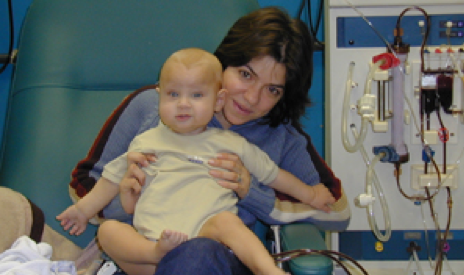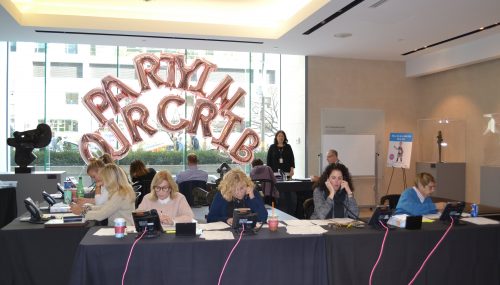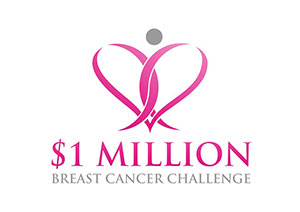
Rothberg Department of Pediatric Nephrology
Home to one of only four Pediatric Dialysis Units in all of Israel, and the largest in the country, Shaare Zedek’s Department of Nephrology is regularly filled beyond capacity, reflecting the critical need that will be served within the Wilf Children’s Hospital.
Shaare Zedek Medical Center treats children with congenital and acquired kidney problems from infancy until adulthood. Many resources are devoted to caring for children in renal failure that require dialysis or kidney transplant.
The institute is divided into three main units:
1. Pediatric Hemodialysis Unit. Children requiring dialysis come to the hospital 3-4 times a week for treatment.
2. Peritoneal Dialysis Service. The dialysis is performed by the parents in the comfort of home, under the guidance and monitoring of the institute staff.
3. Pediatric Nephrology Day Hospital and Clinic. Here patients receive IV medication and undergo evaluations and monitoring by a multi-disciplinary team. The patients are mainly children after kidney transplant, children in renal failure and children with inflammatory kidney diseases.
Shaare Zedek believes strongly that children should receive medical care separately from adults whenever possible. Even the best hospital can be an intimidating place for a child, and this feeling is exacerbated if they are forced to enter a world of ill adults to receive treatment.
Young patients in the Pediatric Dialysis Unit with end-stage renal disease must receive treatment three times a week, for several hours each time, often for several years. Most of these children are awaiting a kidney transplant. As such, the Hospital becomes a second home for them, and we are committed to making this home as welcoming as possible. Socially, the Pediatric Dialysis Unit is a different world – and perhaps points the direction to Israel’s future.
Present in the Unit at all times are both Hebrew and Arabic speaking nurses, so every patient and family member can make him or herself understood. In fact, because the young patients miss many hours of school due to their illness, both Hebrew-speaking and Arabic speaking teachers, all accredited and licensed by the Ministry of Education, are present in the Unit every day to help the children, of elementary to high school age, keep up with their schoolwork as much as possible.
The children’s parents often develop close relationships as well, as they discover over a cup of coffee that there is much more that unites them, particularly the problem of coping with an ill child – than that which divides them.
Shaare Zedek as a whole is a model of coexistence, and this is nowhere more evident than in the Pediatric Dialysis Unit.







